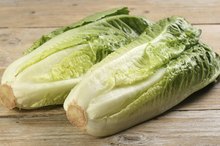What does fact checked mean?
At Healthfully, we strive to deliver objective content that is accurate and up-to-date. Our team periodically reviews articles in order to ensure content quality. The sources cited below consist of evidence from peer-reviewed journals, prominent medical organizations, academic associations, and government data.
- MedlinePlus: Adrenal Gland Hormone Secretion
- Office of Dietary Supplements: Vitamin C
- Journal of the American College of Nutrition: Consequences of Magnesium Deficiency on the Enhancement of Stress Reactions; Preventive and Therapeutic Implications (A Review)
- Journal of the American College of Nutrition: Consequences of Magnesium Deficiency on the Enhancement of Stress Reactions; Preventive and Therapeutic Implications (A Review)
- Office of Dietary Supplements: Magnesium
The information contained on this site is for informational purposes only, and should not be used as a substitute for the advice of a professional health care provider. Please check with the appropriate physician regarding health questions and concerns. Although we strive to deliver accurate and up-to-date information, no guarantee to that effect is made.
Juicing for Adrenal Support
Many people eat unhealthy foods to cope with stress, but making the right food choices, including healthy juice, may help improve your body's response to stress. The adrenal glands, located at the top of your kidneys, produce the hormones that help you manage stress, including cortisol, dopamine and adrenaline. Nutrients found in fruits and vegetables are necessary for the production of some of these hormones and offer support for adrenal health. Consult your doctor if you're having a difficult time managing stress.
More Vitamin C
According to a review article published in 2009 in Alternative Medicine, vitamin C supports adrenal health and helps reduce high cortisol levels. Make a delicious vitamin C-rich juice with tomatoes, lemon and spinach. If you prefer a sweeter juice, try orange, kiwi and cucumber.
- According to a review article published in 2009 in Alternative Medicine, vitamin C supports adrenal health and helps reduce high cortisol levels.
- If you prefer a sweeter juice, try orange, kiwi and cucumber.
Veggie Juice for your Bs
Is Beet Juice Good for Hormonal Balance?
Learn More
Thiamine and pantothenic acid protect the adrenal gland, vitamin B-6 is a cofactor in the production of dopamine and folate helps regenerate dopamine and epinephrine. Leafy greens, such as:
- spinach
- kale
- romaine lettuce
- collards
- broccoli
- are good sources of the B vitamins
- while citrus fruits are also a good source of folate
A B-vitamin-rich juice blend might include kale, carrots and tomatoes or grapefruit, romaine lettuce and lemon.
Get More Magnesium
Most Americans don't quite meet their magnesium needs, according to the Office of Dietary Supplements 46. Poor magnesium levels during times of stress can tax your adrenal glands. Spinach, bananas, apples and broccoli are sources of magnesium that you can include in your juice to make sure you're meeting your daily needs. Apple, banana and spinach makes a sweet combination. Or try celery, broccoli and tomato for a savory mix.
- Most Americans don't quite meet their magnesium needs, according to the Office of Dietary Supplements 4.
- Spinach, bananas, apples and broccoli are sources of magnesium that you can include in your juice to make sure you're meeting your daily needs.
Juicing Tips and Suggestions
How to Make Grapefruit Juice Taste Better
Learn More
Fruits and vegetables are important for overall health, including the health of your adrenal glands, and making your own juice is a good way to up your intake. However, while fresh juices are healthy, they're not as good as eating the whole fruit or vegetable. To get the benefits of both juice and fruit, limit your intake of fresh juice to 4 ounces to 8 ounces a day. Also, you can up the nutritional quality of your juice by adding some of the pulp to your drink.
- Fruits and vegetables are important for overall health, including the health of your adrenal glands, and making your own juice is a good way to up your intake.
- To get the benefits of both juice and fruit, limit your intake of fresh juice to 4 ounces to 8 ounces a day.
Related Articles
References
- Hormone Health Network: Adrenal Disorders
- Alternative Medicine Review: Nutrients and Botanicals for Treatment of Stress: Adrenal Fatigue, Neurotransmitter Imbalance, Anxiety and Restless Sleep
- MedlinePlus: Adrenal Gland Hormone Secretion
- Office of Dietary Supplements: Vitamin C
- Journal of the American College of Nutrition: Consequences of Magnesium Deficiency on the Enhancement of Stress Reactions; Preventive and Therapeutic Implications (A Review)
- Office of Dietary Supplements: Magnesium
- Quickanddirtytips.com: Juicing: Healthy Habit or Blood Sugar Bomb?
- Hyson DA. A review and critical analysis of the scientific literature related to 100% fruit juice and human health. Adv Nutr. 2015;6(1):37-51. doi:10.3945/an.114.005728
- Orange juice. FoodData Central. U.S. Department of Agriculture. Published April 1, 2019.
- Zarfeshany A, Asgary S, Javanmard SH. Potent health effects of pomegranate. Adv Biomed Res. 2014;3:100. doi:10.4103/2277-9175.129371
Writer Bio
Jill Corleone is a registered dietitian and health coach who has been writing and lecturing on diet and health for more than 15 years. Her work has been featured on the Huffington Post, Diabetes Self-Management and in the book "Noninvasive Mechanical Ventilation," edited by John R. Bach, M.D. Corleone holds a Bachelor of Science in nutrition.









